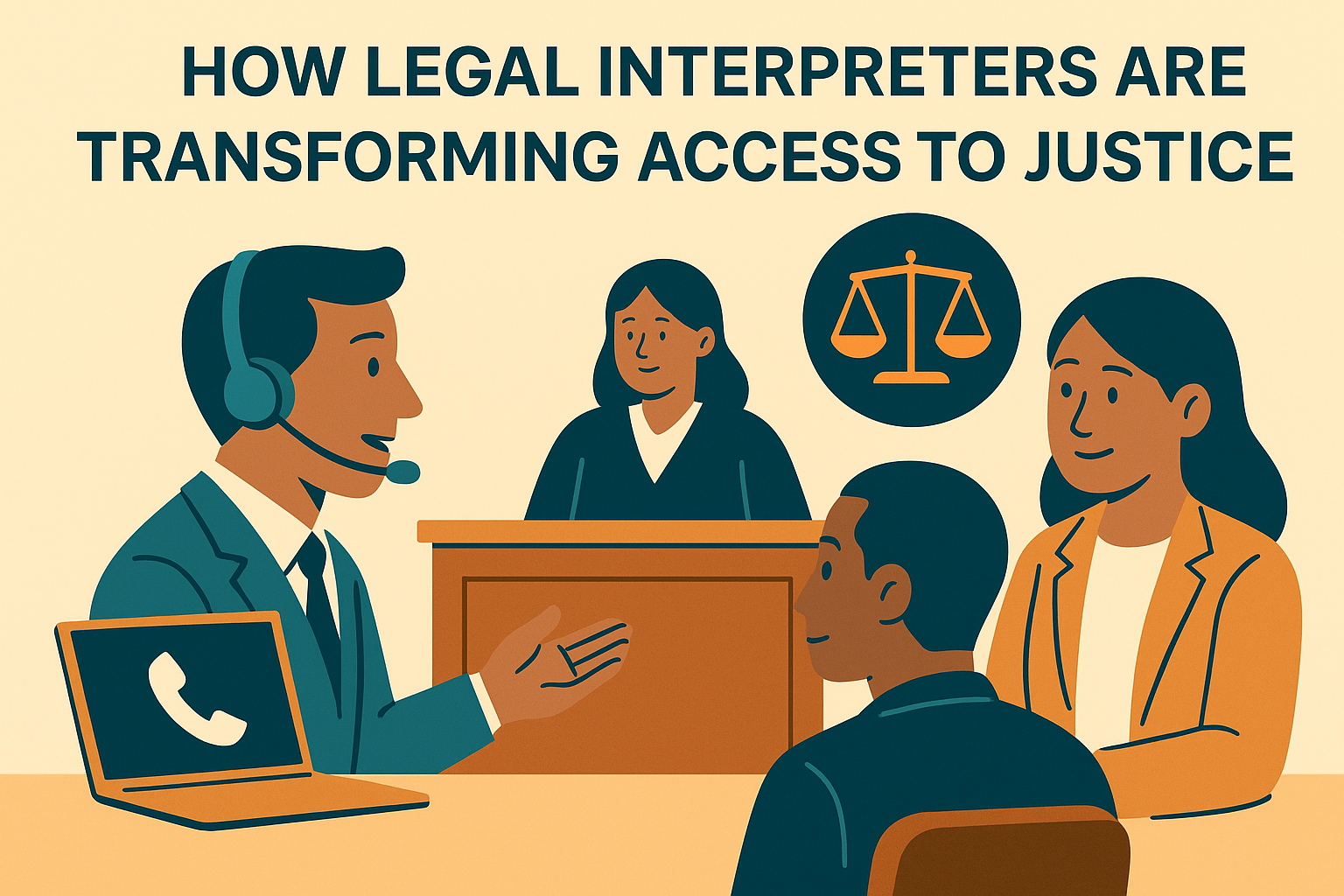
The Game-Changing Role of Legal Interpreters
I
The Game-Changing Role of Legal Interpreters
In courtrooms and legal offices across the country, a quiet revolution is underway—led by professional interpreters. With the rise of multilingual communities and increasing demands for language access, interpreters are no longer just helpful; they’re essential to justice. Whether it’s a high-stakes trial or a quick legal consultation, interpreters ensure every word carries weight, context, and legal accuracy.
Why Interpreting in Legal Settings Is So Complex
Legal interpreting isn’t just about converting words from one language to another. It requires precision, cultural insight, and a deep understanding of legal terminology and procedure. One misunderstood phrase can mean the difference between freedom and conviction, compliance and penalty.
The Impact on Due Process and Equity
For defendants, plaintiffs, and witnesses who speak limited or no English, the presence of a certified interpreter is a legal right and a fundamental necessity. Studies confirm that language access in court directly influences outcomes, from plea deals to sentencing. Interpreters ensure individuals can understand and participate fully in their legal proceedings.
What Makes Legal Interpreters Different?
Legal interpreters are highly trained professionals who specialize in:
- Legal terminology: From “probable cause” to “amicus brief,” interpreters need to know and accurately convey legal concepts in both languages.
- Confidentiality: Legal settings require the strictest confidentiality standards—interpreters must maintain professional integrity at all times.
- Real-time decision-making: Interpreters must think on their feet, delivering instant, accurate interpretations in high-pressure situations.
The Rise of Remote Legal Interpreting
The COVID-19 pandemic accelerated the adoption of remote legal services, and interpreters were no exception. Platforms offering over-the-phone interpreting (OPI) and video remote interpreting (VRI) have made it easier to meet urgent needs, connect with rare language specialists, and reduce wait times in court dockets. Remote interpreting continues to transform access and affordability for courts and clients alike.
Challenges That Still Exist
Despite these advancements, challenges remain. Some courts struggle to find interpreters for less common languages. Remote settings can present technical or privacy concerns. And without standardization, interpreting quality varies widely across jurisdictions. Still, these issues are driving innovation and renewed investment in interpreter training and certification.
A Future Built on Language Equity
Interpreters are not just service providers—they are enablers of justice. Their work gives a voice to those who might otherwise be silenced by bureaucracy or misunderstanding. As courts and legal providers modernize, expect to see interpreters involved earlier and more strategically across every touchpoint.
At TransOptimum, we work with law firms, courts, and government agencies to ensure every individual—regardless of language—has equal access to their legal rights. If your team needs expert support in legal settings, we’re ready to help.
Explore all our services or get in touch for a free consultation today.